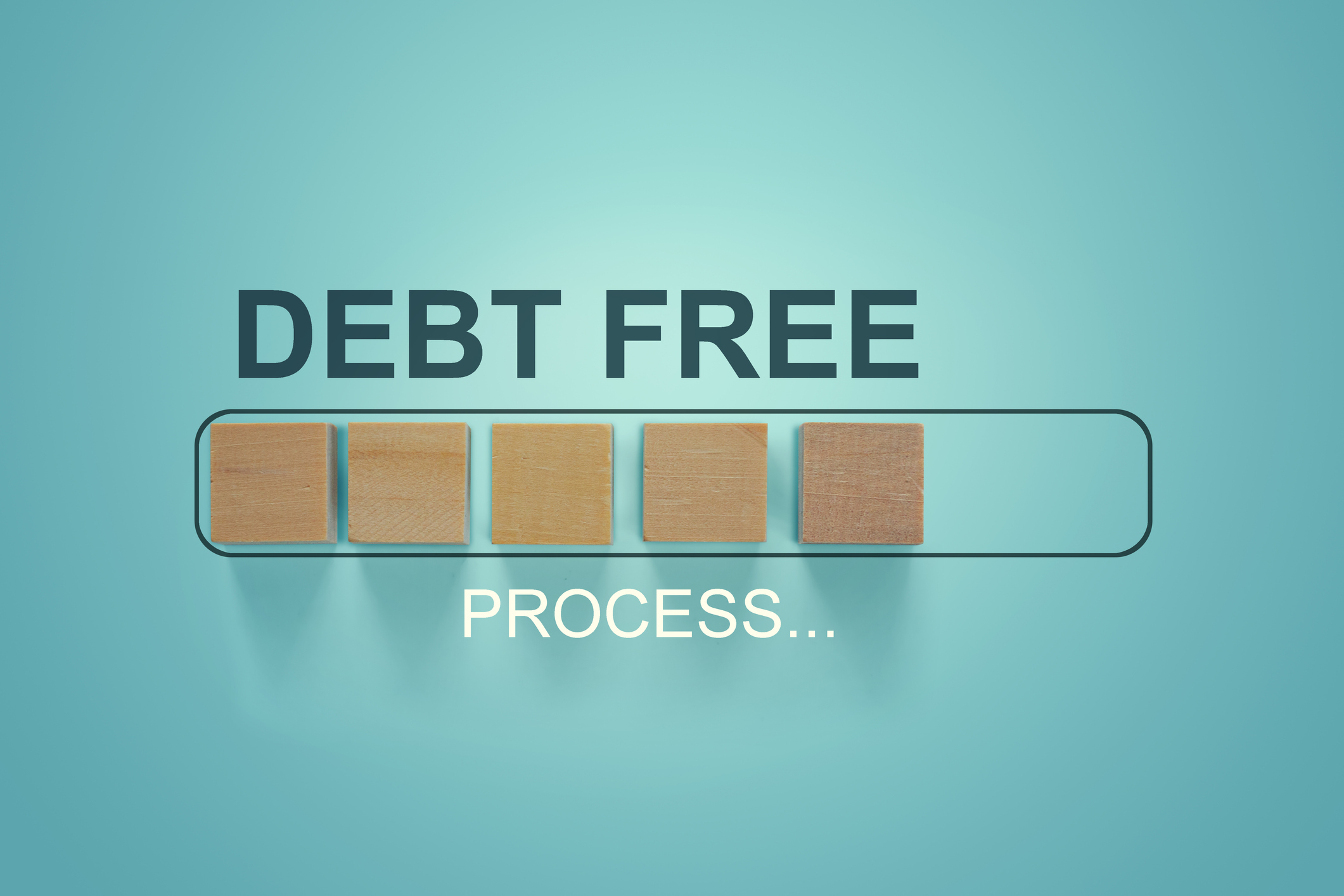This post is all about finance tips and tricks to help you manage and take control of your finances in 2025 as a beginner adult.

Are you a beginner adult? Yes? Well, you are in good company. I think everyone, no matter how long you may have been adulting, still feels like a beginner sometimes, particularly in managing your finances. However, you do learn some tips and tricks about how to handle your finances as you go, and I am going to share what has helped me get control of my finances in my first year of adulting.
Before I really dive in, I want to take a second and congratulate you on starting this journey! Becoming an adult can get a bad rap. However, I like to look at adulting as an opportunity. Adulting gives you the freedom to make choices, create a life you love, and define your own path. Sure, it comes with challenges, but these challenges are the building blocks of growth and independence.
I know, I know, finances are one of the most dreadful yet exciting part about learning how to adult: how to handle money. You are probably going to be making more money than you ever have before. While this is amazing, without proper care and planning, you will likely look up at the end of your first year of adulting and wonder where all your money went. There are a few things you need to get under control with your finances within your first year of adulting if you want to move towards your financial goals in 2025.
Do not forget to save this for later!
Budgeting
Another dreadful word that no one likes to hear: a budget. Again, I think this is another thing that gets a bad rap in the learning how to adult word. I think when people hear the word budget, they think it is immediately going to be super restricting. However, a budget is simply just your plan for the month ahead. You are giving each dollar an assignment, as Dave Ramsey says. This just means you are deciding where your money is going to go for the month before you have it.
I have used a budget ever since starting my first “big girl job.” It has been super helpful for me to track my spending. I am naturally a spender, but having a budget helps me make sure that I am spending less than I make.
For example, I use a Google Sheet to track my spending. Before the month begins, I put in what I plan to make, expenses including fixed and variable, and my savings goals for the month. As the month goes on and I get paid, and I spend money, I update this sheet to document how much I get paid and how much I am spending to make sure I am not overspending and that I can still meet my financial goals for the month.

There are so many different ways to do this, though. For example, some people like to use an app, others have to see it physically written down, and some people really love Excel, like me. My recommendation is to find what works best for you and stick to it. Budgeting takes a little while to exactly figure it out, so stay with it. Give yourself some grace for the first 3-6 months. I still have some money where I make mistakes, but I learn from it each time and try to do better the next month.
This has been a big lesson for me in learning how to adult because it has really opened my eyes to how I am spending my money and maybe in ways that I can cut my spending.
Debt
I think we all probably know debt is not a good thing. However, debt is a very normal thing in our society. If you are anything like the 55% of students from public four-year institutions that have student loans, then you are not alone, and if you do not, then lucky you. You are already ahead in the financial world of adulting.
My biggest advice for anyone who is figuring out how to adult and has debt is to pay it off, whether it is student loans, credit cards, a car, whatever. PAY IT OFF, AND FAST! I know what you are thinking, but the interest rate is so low. But it is building my credit. But I cannot afford to pay any more than the minimum payments. However, let me tell you what paying off debt gives you. IT GIVES YOU FREEDOM AND MARGIN TO LET YOUR MONEY WORK FOR YOU!

Paying off debt allows you to free up money each month that you get to keep without having to pay a payment. It allows you to save and invest more, which allows you to accomplish more financial goals. For example, if you are paying $750 a month on your student loans, the faster you pay those off, the faster you get that money back in your budget to use how you please. I understand that paying off debt is a lot harder than it sounds, but I want to encourage you to hustle now just as you are starting out in your adulting journey.
You are young, and likely, right now is the time in your life when you are the least tied down you will ever be and have the most free time. Pick up a side hustle, a part-time job, sell some stuff, etc. If you can make an extra $1000 a month, then over the course of a year, that is an extra $12,000 you can throw at your debt. That may sound like a lot if you are up against a large pile of debt, but over time, you will get there, and if you hustle, that $1,000 will probably turn into more.
I promise paying off your debt is not something you will ever regret, and it can really help propel you forward in your learning adulting journey!
Saving
Save, Save, Save. You probably have heard that from all your family members as you are starting on this journey of adulting. “Save every dollar you can.” Unfortunately, I agree with them, but to a point. I will get to my point in the next section about investing.
I think there are 3 things you need to be saving as you start adulting. These are an emergency fund, sinking funds, and life events. You may be asking yourself what these are. I will give you some easy to remember definitions.
Emergency Fund: It is pretty simple, this for emergencies, and emergencies only. This is for expenses you cannot foresee. Or how I like to think about it: for times when 💩 hits the fan. A good rule of thumb is to have 3-6 months of expenses saved in your emergency fund.
Sinking Funds: These are funds for savings for larger purchases that are not really an investment, hence the word sinking because it is essentially spending money. Some examples of sinking funds are a Car Fund, Travel Fund, Gift Fund, Fun Money, and Hair/Beauty. You can really create a sinking fund for anything, and I love sinking funds because it is guilt-free spending. I do not have to feel guilty for spending money from this fund because I have planned for it hence why the money is there.
Life Events: Kinda like sinking funds; this is where you are saving for certain things, but to me, these are the BIG THINGS. Like buying a house, saving for a wedding, saving for your first child, or even saving for children’s college. These types of funds are big ticket items that might take years to save for, and/or you might have years before this happens to save for them.
Let me be clear: these are not all things you have to be or should be saving for all at once. In fact, there is a quote I like a lot that explains it well: “You can do two things at once, but you can’t focus effectively on two things at once.” For example, I am just in my first year of adulting myself, and currently, I am only saving for an emergency fund and a couple of my sinking funds. I am super close to having my emergency fund fully funded, and after that, I plan to start saving for a house. However, I think if I was maybe engaged or pregnant, my saving goals might be different.
It is also important to mention where to store these funds. You can very well store them in a traditional savings account if you prefer. However, I like to store my emergency fund in a High Yield Savings Account or a HYSA, and this is exactly what it sounds like. A savings account with a high interest rate. These are becoming extremely popular because of the amount of interest you can earn in these accounts. It is worth noting that banks that offer HYSAs are usually banks that do not have a physical location to go, but that is how they offer these accounts because they have lower overhead costs than brick-and-mortar banks on your street.
I also love my HYSA because it is not directly attached to my checking account meaning I cannot get to it super easy. Do not get me wrong, this money is still very much liquid but instead of it being instantly available in my account, it usually takes a day or two. This is good for me because it really makes me stop and think about whether or not I really need to be spending the money.
Here is a link to the HYSA that I use, but there are so many options out there. So, do your research and just find one you like. I like this one because it has buckets where I can separate my separate funds, but I still earn interest on the entire amount in the account.
So, whatever your personal savings goals as you begin adulting make sure you are staying focused because it is going to take you longer to get where you want to go if you are trying to focus on too many things at once.
Investing
The final thing I think you need to focus on as you are beginning your adulting era is investing. Investing in retirement, that is. I know what you are thinking: I am just starting my life, so why would I be worried about retirement right now? Well, you should be worried about it because I highly doubt you want to work the rest of your life until you die. And maybe you do, however that is just not me.
A good rule of thumb to be investing for retirement as you learn how to adult is 15% of your income. For easy math, if you make $100,000 a year, you should be investing $15,000 a year for retirement.
There are several ways you can do this, you can do this through your employer in a 401K or a 401 Roth if they offer it and usually, they offer a match, which is free money (girl math, am i right?). Or you can invest on your own in a Roth IRA, which grows tax-free. So, this means when you retire, you have to pay no taxes on this money. This is because any money invested in Roth IRAs is made after you have been paid; therefore, you have already paid taxes on this money, and that is not the case with a 401K.
I am not going to pretend to act like I am an expert at what retirement investing options are available. Instead, I am going to tell you what I personally do. However, here is a list of the best retirement plans of 2024, according to Forbes. For instance, I personally put 5% into my 401k, and my employer puts in 5.5% (2.5% match and a 3% earnings contribution). That puts me at 10.5% every paycheck, with me only putting half in.
In addition, I also have a Roth IRA outside of my employer that I put in $583.33 a month, which adds up to the maximum contribution list of $7,000 for 2025. This contribution puts me over the 15% of my income I am trying to achieve every year.

My biggest advice about investing when you are just starting out adulting is just to do something. Make sure you do your research to make sure you understand something before you put your money into it, but PLEASE DO NOT SIT ON YOUR HANDS AND DO NOTHING. The younger you start investing, the better!
They say an investment doubles every 7.2 years at a 10% rate of return. This is called the Rule of 72. This means $1,000 at age 20 will be $2,000 at age 27, $3,000 at age 34, $4,000 at age 41, $5,000 at age 48, $6,000 at age 56, $7,000 at age 63. Now, just imagine some zeros on the end of those. I also recommend using an investment calculator to run these numbers because you can put in your income how much of a raise you should get every year, how much you plan to contribute, your retirement age, etc. This will give you a real picture of just how much it matters to start investing early.
Learning
The best thing you can do for yourself as you are learning to adult and manage your finances is to educate yourself. Honestly, before my last semester of college, I had no interest in finances. It was not until I took a finance class in college that I learned about the power of investing, and that launched me into a rabbit hole of learning all about personal finance.
I personally want to live a really big, successful life, and I know money is a component of that. Therefore, I want to know how to use it to my advantage. Ever since I discovered my interest in personal finance, I am constantly listening or reading to something to help me learn more about money.
I am far from an expert on anything, but I wanted to include some of the people that I listen to and learn from.
I’m a huge fan of The Ramsey Show—and when I say huge, I mean I listen to it almost every day. With three hours of content airing every weekday, it’s pretty easy to get hooked. While I sometimes wonder if this much financial talk is overkill, it has a way of keeping me mindful of how I’m managing my money and pushing me to think critically about my financial decisions. One of my favorite parts? Listening to the calls from people across the U.S. sharing their personal stories and financial journeys.
I’ll be honest: I don’t agree with every single thing Dave Ramsey says—maybe about 95% of it—but I really appreciate his ability to break down complex financial topics and make them practical and actionable. His advice might not always be the most fun to follow in the moment, but if you stick with it, it’s designed to lead you to financial freedom.
If you’ve never listened to the show, I highly recommend giving it a try! Even though I enjoy listening to Dave himself, I’ve found that the Ramsey Personalities are often my favorite—they bring a relatable, down-to-earth perspective to the table that’s hard to beat.
I listen to The Money Guy Show a lot—it’s one of my favorite ways to learn about personal finance. Brian and Bo do a fantastic job of explaining financial concepts in a way that feels approachable and easy to follow. They’re not just throwing numbers at you—they give real-life, relatable advice that helps you make smart decisions about your money.
What sets this show apart for me is how they blend education with a little humor and personality. Brian and Bo are great at making even complicated topics like investing and retirement planning feel simple and actionable. They also have a lot of free resources and tools that make it easy to take what you’ve learned and apply it to your own financial journey.
If you’re looking for practical financial guidance and a show that doesn’t feel boring, I’d definitely recommend giving The Money Guy Show a listen!
Some Books I recommend:
I Will Teach You to Be Rich by Ramit Sethi
Breaking Free From Broke by George Kamel
The Millionaire Next Door by Thomas J. Stanley and William D. Danko
Conclusion
Managing your finances as an adult can feel overwhelming, especially when you’re just getting started. The good news is that it doesn’t have to be perfect right away—small, consistent steps can make a big difference over time. Whether it’s creating your first budget or deciding to tackle debt, every action counts toward building a solid financial foundation.
I hope this post has provided you with practical tips to help you take control of your money. From budgeting and saving to becoming debt-free and investing for your future, the journey to financial stability is one that you can absolutely succeed in. Remember, the key is to stay focused on your goals and take things one step at a time. You’ve got this!
While managing finances might feel daunting now, with patience and persistence, you’ll gain the confidence and skills to handle your money well. Keep moving forward, and celebrate the progress you make along the way. Financial freedom is closer than you think!
Thank you so much for reading! Please do not forget to comment and share this post!

One Comment
Comments are closed.